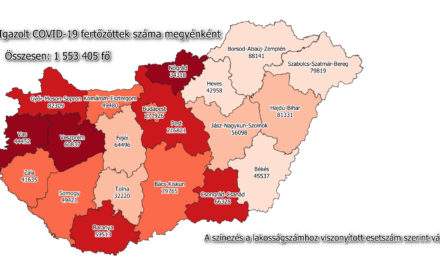A year later, on May 28, 2022, the legal provision enabling the sanctioning of double quality will enter into force. Starting next summer, retailers offering substandard goods to Hungarian customers may be fined up to half a billion forints due to unfair commercial practices, the Ministry of Innovation and Technology (ITM) warned in its statement on Friday.
About a third of the 120 pairs of products checked during this year's ITM laboratory tests had more active ingredients in the foreign version or more information on the packaging, they emphasized.
From the end of next May, double quality will be sanctionable as an unfair trade practice, i.e. if a product is marketed in an EU member state with the same brand name and appearance as a product marketed elsewhere, but its composition or other characteristics are significantly different. In 2017, Hungary was among the first to initiate joint action against this harmful practice. By amending the Consumer Protection Act, one year before the transposition deadline, last December, the National Assembly incorporated the provisions of the related EU directive into the national regulations, the ITM announced.
The discrimination of Hungarian consumers will therefore come to an end, as from next summer, double quality will become sanctionable. The fine that can be imposed can reach up to 5 percent of the manufacturer's sales revenue, and in the case of multi-companies it can be a maximum of HUF 500 million. The buyer must be informed about the differences that can be justified by legal and objective factors.
This year, the accredited chemical industry laboratory of ITM performed tests on 420 different product samples. The 120 types of household-chemical and cleaning-cosmetic products available in Hungary were compared with their product pairs sold in Austria, Germany and Italy. Among other things, the experts compared the label, packaging, ingredients and measurable active ingredient content of detergents and dishwashing detergents, stain removers, bleaches, fabric softeners, shampoos, shower gels and liquid soaps. The ITM and the consumer protection authority check the double quality of products that are not classified as food. In the case of foodstuffs, the National Food Chain Safety Office (Nébih) can act.
State Secretary for Trade Policy and Consumer Protection Péter Cseresnyés said:
"Dual quality can be determined in the case of about a third of the 120 product pairs tested, 41 goods. The active ingredient content of twenty-nine foreign products was higher than that of products sold under the same name in Hungarian stores. In twenty-four cases, domestic consumers were discriminated against because more information was included on the Italian, Austrian or German packaging. One-tenth of all checked goods can be purchased in Western European and Hungarian stores of different quality in both respects. For fourteen products, the specialists experienced double quality in the distribution, due to the fact that the better, higher-quality pieces of a product family are not sold in our country."
The names of the products of different quality will become available once the official procedure is initiated, which will also be possible from May 2022. During the one-and-a-half-year preparation period between the adoption of the law and its entry into force, manufacturers and distributors can take voluntary measures to comply with the legal obligation. Consumer protection is already informing the relevant market participants how to change their practice in order to avoid future fines.
MTI
Photo: Shutterstock / Illustration












